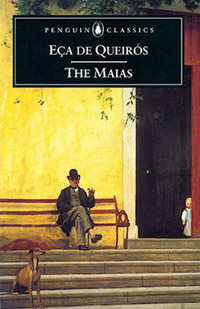8 novels in translation
We're pleased to welcome our guest bookseller, Gary Perry, to recommend his favourite translated fiction, from magnificent classics to award winners. Gary is Assistant Head of the Fiction Department at Foyles' flagship store on London’s Charing Cross Road.
The Vegetarian by Han Kang
Translated from the Korean by Deborah Smith.
Han Kang is a firm favourite with both our booksellers and our customers alike. The Vegetarian, in particular, has been a huge hit for us at Charing Cross Road, and justly so. Its protagonist, a young South Korean woman, whose decision to renounce meat is met with fierce opposition and incomprehension from her friends and family, is one of the most enigmatic characters in modern fiction. A strange and unforgettable book.
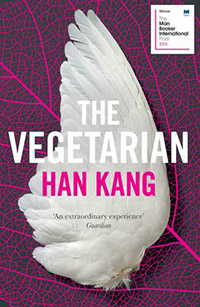
Swallowing Mercury by Wioletta Greg
Translated from the Polish by Eliza Marciniak.
There's a real magic to Wioletta Greg's account of a childhood in rural Poland. A loving yet unsentimental approach. Her attention to the changing seasons, to the rhythms of country life and the currents of Polish history, makes for a hypnotic read. Few writers have captured a child's view of the world with so much warmth and mystery.
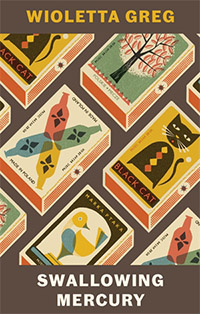
Things We Lost in the Fire by Mariana Enriquez
Translated from the Spanish by Megan McDowell.
A word of warning: I read these stories while alone at home and, afterwards, had to check that the windows and doors were firmly bolted. Enriquez takes the traditional tropes of horror - the haunted houses, the death cults, the dismembered and disfigured bodies - and uses them to mine both the troubled psyches of her characters and the violent past of her country. The Things we Lost in the Fire burns luridly and brilliantly.

The Gurugu Pledge by Juan Tomás Ávila Laurel
Translated from the Spanish by Jethro Soutar
On a mountain above the Spanish enclave of Melilla, a group of refugees gather, sharing stories and playing football, as they await an opportunity to reach Europe. An original and refreshing approach to an urgent crisis, The Gurugu Pledge brings a much needed African voice to bear upon a contemporary tragedy. With his distinctive style, so clearly nourished by the oral tradition and unlike anything in the Anglophone world, Ávila Laurel is refashioning the African novel.
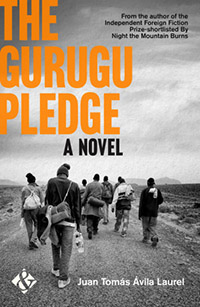
Fever Dream by Samanta Schweblin
Translated from the Spanish by Megan McDowell.
An unsettling and enigmatic novella, Fever Dream unfurls with all the peculiar logic and terror of a nightmare. Schweblin channels the fears inherent within parenthood and brings into being a tense and sinister atmosphere, reminiscent of such disturbing classics as Henry James' The Turn of the Screw and Cormac McCarthy's The Road. Deservedly shortlisted for the 2017 Booker International Prize, Fever Dream will leave you gloriously spooked.
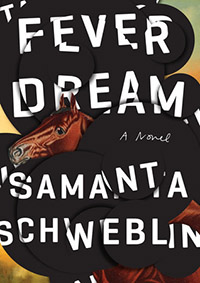
The End of Eddy by Édouard Louis
Translated from the French by Michael Lucey.
With the recent French presidential elections, the world's eyes have been firmly fixed on the Fifth Republic, so this translation of Eduard Louis' controversial debut couldn't be more timely. An uncompromising account of growing up gay in poverty-stricken rural France, The End of Eddy is a shattering read.

The Gold-Rimmed Spectacles by Giorgio Bassani
Translated from the Italian by Jamie McKendrick.
Remarkable for its concision and for the sheer heartbreaking force of its empathy, what Bassani's novella lacks in length, it more than makes up for in terms of sophistication and prose of great emotional power. As the lives of the novella's Jewish narrator and its gay protagonist draw closer together, what appears is not only a portrait of Italy at a particular time and in a particular place (Ferrara, the Fascist era) but a study of prejudice and of what it means to be an outsider. Few other books have touched me as deeply.
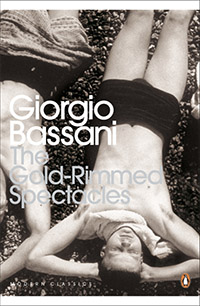
The Maias by Eça de Queirós
Translated from the Portuguese by Margaret Jull Costa.
A sprawling and magnificent classic from a writer who holds the same formidable position in Portuguese fiction as Dickens and George Eliot retain in the UK. It is, in so many ways, the quintessential nineteenth century novel. Addictive and full of vim, de Queiros' account of a family in decline should find a place in every reader's library.
